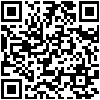外教一對(duì)一課程領(lǐng)取私人定制英語(yǔ)學(xué)習(xí)方法
相關(guān)帖子
- ?2025能帶來(lái)好運(yùn)的英文微信昵稱(chēng)(140個(gè)),墻裂馬住!!
- 網(wǎng)上學(xué)英語(yǔ)口語(yǔ)有沒(méi)有效果?是怎樣學(xué)習(xí)的?
- 外貿(mào)英語(yǔ)干貨 | 外貿(mào)英語(yǔ)溝通常用句型集錦
- 外貿(mào)英語(yǔ)干貨!外貿(mào)人客戶開(kāi)發(fā),英語(yǔ)對(duì)話范本……
- 【急求!!】英語(yǔ)口語(yǔ)怎么練最有效?有沒(méi)有靠譜點(diǎn)的英語(yǔ)口語(yǔ)培訓(xùn)班?
- 【中英對(duì)照翻譯】外貿(mào)展會(huì)常用的60句英語(yǔ)口語(yǔ)
- ?英語(yǔ)基礎(chǔ)差怎么提高?英語(yǔ)怎么快速提升?有沒(méi)有過(guò)來(lái)人說(shuō)說(shuō)看
- 鄭州英語(yǔ)口語(yǔ)一對(duì)一有沒(méi)有?哪個(gè)口語(yǔ)課程靠譜呢?
- 如何和外國(guó)的商業(yè)伙伴在電話中用地道的英語(yǔ)談合作?
- 工作上的英語(yǔ)口語(yǔ)句子!職場(chǎng)中必備的英語(yǔ)口語(yǔ)句子,建議收藏起來(lái)!
最新文章
- 3個(gè)讓外教驚艷的英語(yǔ)表達(dá)技巧,讓你秒變“口語(yǔ)刺客”!(附“社牛”秘籍)
- 這些職場(chǎng)面試經(jīng)典英文回答,獻(xiàn)給畢業(yè)的你!讓畢業(yè)生輕松完勝資深員工!
- ?2025能帶來(lái)好運(yùn)的英文微信昵稱(chēng)(140個(gè)),墻裂馬住!!
- 【急】2025最新線上一對(duì)一英語(yǔ)外教哪個(gè)好?一節(jié)課多少錢(qián)?
- 【求問(wèn)】有沒(méi)有報(bào)過(guò)班的說(shuō)一下成人學(xué)習(xí)英語(yǔ)選擇哪個(gè)機(jī)構(gòu)?
- 好想找個(gè)靠譜一點(diǎn)的成人英語(yǔ)網(wǎng)課,大家有什么推薦嗎?
- 【在線等!急!】學(xué)好英語(yǔ)口語(yǔ)一定要報(bào)班嗎?英語(yǔ)口語(yǔ)培訓(xùn)班哪家好?
- 成人英語(yǔ)口語(yǔ)要怎么學(xué)? 有什么好方法嗎?
- 成人英語(yǔ)口語(yǔ)怎么學(xué)比較好?怎么學(xué)效果好?
- 成人一對(duì)一英語(yǔ)外教課有沒(méi)有必要?性價(jià)比高嗎?
- 深圳有沒(méi)有適合上班族學(xué)英語(yǔ)口語(yǔ)的機(jī)構(gòu)?有推薦嗎?
- 有沒(méi)有靠譜的線上英語(yǔ)外教?有推薦嗎?
- 在線英語(yǔ)課程一對(duì)一效果怎么樣?有推薦嗎?
- 英語(yǔ)培訓(xùn)在線平臺(tái)哪家好?哪個(gè)平臺(tái)最受歡迎?
- 中山英語(yǔ)培訓(xùn)機(jī)構(gòu)推薦哪家?哪個(gè)機(jī)構(gòu)比較適合上班族學(xué)習(xí)?
那些年哪些事
32018-06-22 11:06:37
people 表示“人們”,這是小學(xué)里就學(xué)過(guò)的詞。
這個(gè)詞又好記、又好念,大家都用得很順溜。反正很多人在寫(xiě)英語(yǔ)作文、說(shuō)英語(yǔ)口語(yǔ)時(shí),逢“人們”時(shí)都會(huì)用 people,中槍了嗎?
people作“民族”解時(shí),有單、復(fù)數(shù)之分。如:a people 一個(gè)民族。
e.g. There are 56 peoples in China.
中國(guó)有56個(gè)民族。
2. person: 泛指 man,woman 或 child 中的任何一個(gè),其復(fù)數(shù)形式是 persons,但人們習(xí)慣用 people 代替 persons。“一個(gè)人”常譯作 a person,而需要說(shuō)明一個(gè)人的性別時(shí),要用 a man 或 a woman 來(lái)表示。
e.g. Human beings are the dominant species in this planet.
人類(lèi)主宰著這個(gè)星球。
4. individual: 可作名詞,表示“個(gè)人”。通常跟“集體”、“國(guó)家”相對(duì)應(yīng)。強(qiáng)調(diào)每一個(gè)人,相當(dāng)于“every single person”。
e.g. This newly introduced policy is going to have profound influence on individuals.
5. one: 不定代詞,泛指“一個(gè)人”,通常后面跟一種特點(diǎn),指的是“具備這種特點(diǎn)”的一個(gè)人會(huì)怎樣。
e.g. One who refuses criticism from others is unlikely to succeed in life.
那些不虛心接受他人批評(píng)的人難成大器。
6. those who: 這兩個(gè)詞通常連用,表示“那些...人”,用法跟 one 相似,只不過(guò) one 表單數(shù),those who 表一群人。
e.g. Those who break the law should be brought into justice
那些觸犯法律的人應(yīng)受到法律的制裁。
7. population: 指“人口”;也可以用來(lái)表示“全體人民”、“國(guó)民”,強(qiáng)調(diào)一個(gè)整個(gè)國(guó)家人民的“整體”的概念。
e.g. Mandela gained support from the population by his charismatic endeavors and speeches.曼德拉通過(guò)自身魅力,個(gè)人努力和演說(shuō)獲得全國(guó)人民的支持。
8. the public: 公眾,表示社會(huì)上大多數(shù)人(的看法或意見(jiàn))。(*population 表示整個(gè)國(guó)家或地區(qū)的人,而 public 更加偏重社會(huì)上主流人群)
e.g. This action of deception comes under heavy condemn from the public.這種欺詐行為為眾人所不齒。
另外,在這給大家分享一節(jié)外教一對(duì)一的試聽(tīng)課:【 http://www.jidu95.com/daily/?qd=saon】和外教切磋切磋口語(yǔ),你敢不敢來(lái)?

NO RESULT

